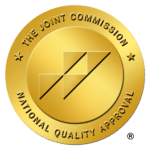Are you feeling isolated on your journey to sober living? A robust addiction recovery support network can be critically influential for a patient navigating the complexities of sobriety. This article will delve into identifying key players in your support circle and effective strategies to build this network, which may not only bolster your recovery process but could also mitigate related pain. Engaged readers will learn how to overcome common hurdles in establishing their support systems, like challenges with health insurance and logistical barriers. By the end of this piece, you’ll have valuable insights into cultivating a network that supports enduring recovery, ensuring the guidance and camaraderie needed throughout this life-changing journey.
Key Takeaways
- Support networks are central to long-term recovery from addiction
- Regular engagement in support groups provides shared experiences and coping strategies
- Professional guidance tailors recovery to individual needs, enhancing success
- A strong support network adapts over time to changing recovery needs
- Celebrating milestones within the network reinforces collective commitment to sobriety
Recognizing the Importance of Support Networks in Recovery
Building a strong support network is a cornerstone in the journey to recovery from substance dependence. It is through these connections that individuals find the strength to alter behavior patterns that once fueled their addiction. The formation of a community, whether through secular organizations for sobriety or alcoholics anonymous, plays a critical role in providing the support needed to mitigate risk and promote healing. Real-life examples demonstrate the success of such networks. The following sections delve into understanding the transformative power of connections, the impact of communal support, and how effective systems operate in reality.
Understanding How Connections Aid Healing
Connections cultivated in recovery environments, such as a residential treatment center, serve as vital lifelines for individuals battling the disease of addiction. The Substance Abuse and Mental Health Services Administration (SAMHSA) emphasizes the significance of community in treatment, highlighting the role it plays in reinforcing recovery behaviors and providing a sense of belonging. Peer relationships, fostered in these settings, offer practical examples of successful recovery, inspiring hope and contributing to the resiliency required to maintain sobriety.
| Support Element | Role in Recovery | Impact Example |
|---|---|---|
| Residential Treatment Center | Professional care and structured support | A safe environment to detox and start the recovery process |
| Community Groups | Peer-supported sobriety and shared experiences | Meeting attendees with years of sobriety provide living proof of the benefits of a sober lifestyle |
| SAMHSA Resources | Guidelines and assistance for recovery | Access to a national helpline offering free, confidential help for those facing substance use disorders |
The Difference a Community Makes in Recovery
The inclusion of robust support systems, like community groups and programs akin to Narcotics Anonymous, contributes significantly to relapse prevention, ultimately improving the quality of life for individuals recovering from addiction. In the face of the opioid epidemic, community support networks serve not only as pillars of faith and resilience but also as critical arenas for the exchange of experiences and strategies that help members avoid potential triggers. These groups embody a shared dedication to sobriety, creating an environment where members empower each other to live substance-free lives, underscoring the profound difference a supportive community can make in the recovery process.
Real-Life Examples of Effective Support Systems
Research on opioid use disorder underscores the efficacy of support systems that incorporate medication-assisted treatment with mental health services, offering patients comprehensive care. Such programs blend medication to manage withdrawal symptoms and cravings with counseling and behavioral therapies, addressing the psychological aspects of addiction. Individuals in these programs often cite the combination of medical expertise and motivational group dynamics as critical to their success, demonstrating the practical value of integrating various support elements in the recovery process.
Identifying Who Should Be in Your Support Network
Selecting the right people to include in a support network is key to the recovery from addiction. Involving family and close friends can combat the loneliness often accompanying detox and can also disrupt patterns of addictive behavior. Connecting with support groups and peers in recovery adds another layer of companionship and insight. Guidance from physicians, counselors, and other professionals provides a foundation for medical and emotional stability. Mentors with their own stories of change serve as beacons of possibility, inspiring progress and fostering friendship in those seeking sobriety.
Involving Family and Close Friends
In the realm of addiction recovery, involving family and close friends can significantly reinforce an addict’s support network, providing both personal accountability and emotional sustenance. Cultivating these relationships often involves education on contingency management strategies, enabling loved ones to offer positive reinforcement when abstaining from a drink or other substances. This layer of personal connection addresses the recovery challenges of isolation and temptation by offering a trusted network committed to the individual’s well-being.
- Education on contingency management equips family and friends to understand addiction and support recovery efforts adequately.
- Family and friends act as a personal accountability system, reinforcing positive behaviors and milestones achieved.
- The supportive presence of loved ones can help reduce feelings of loneliness, which is often a trigger for relapse.
Connecting With Support Groups and Fellow Recovering Individuals
Participating in support groups and forming bonds with other individuals who are undergoing rehabilitation offers invaluable peer reinforcement, enabling a shared journey towards sobriety. American Addiction Centers provide extensive information on the importance of these communal ties, noting that such fellowship fosters an environment ripe for positive change by harnessing collective experience. Regular engagement with these groups encourages the exchange of coping strategies and personalized insights into the recovery process, while also granting access to structured psychotherapy and an empathetic space for individuals to progress in their healing.
Seeking Guidance From Professionals and Counselors
Incorporating the guidance of professionals and counselors can significantly influence the direction and success of one’s recovery journey. The National Institutes of Health underscore the importance of a structured and strategic approach to addiction support, where organization and empowerment are key. By engaging with experienced professionals, individuals gain access to evidence-based treatment plans and essential coping mechanisms, equipping them for the enduring task of maintaining sobriety.
| Professional Guidance | Role in Recovery Network | Benefit |
|---|---|---|
| Counselors | Providing personalized strategies and emotional support | Strategies tailored to individual needs enhance the likelihood of long-term recovery |
| Medical Professionals | Medical assessment and monitoring | Ensuring a safe detoxification process and management of withdrawal symptoms |
| Psychiatrists | Addressing co-occurring mental health disorders | Integrated care for addiction and mental health increases overall well-being |
Finding Mentors Who Inspire Positive Change
Finding a mentor within recovery programs can be a transformative experience, as these individuals often provide psychology-backed peer support and lived wisdom that augment the recovery process. They offer unique insights from their journey in recovery anonymous groups and can introduce beneficial practices like exercise, which research shows aids psychological well-being. The presence of a mentor can act as a lighthouse, guiding individuals through the murky waters of addiction recovery and steering them towards sustained sobriety and health.
Steps to Build a Strong Support Network
Creating a robust support network is a pivotal step in addiction recovery, vital for both outpatient treatment and maintaining long-term health. The journey often starts with reaching out and rebuilding relationships that offer guidance and help manage stress. Engaging with local and online recovery communities, like Celebrate Recovery, provides a sense of belonging and shared understanding. Communicating needs and expectations lays the groundwork for a supportive environment, while establishing regular check-ins with accountability partners ensures progress is monitored. Participants should also take advantage of community resources and activities that encourage healthy habits and celebrate milestones in recovery.
Reaching Out and Rebuilding Relationships
The path to recovery from substance abuse often involves a personal commitment to restoring and developing connections with others. As part of the drug rehabilitation process, individuals are encouraged to reach out to the community, perhaps by engaging in volunteering opportunities that can create a sense of purpose and foster healthy relationships. Incorporating practices such as meditation, endorsed by the Substance Abuse and Mental Health Services Administration, aids in reaching mental wellness goals. These steps not only provide mutual support but also re-establish trust and empathy, which are essential components in the foundation of a strong support network.
Joining Local and Online Recovery Communities
Joining local and online recovery communities offers individuals battling substance use disorder a platform to share their experiences and strengthen their path to sobriety. These supportive spaces foster a sense of unity and confidence, crucial for those navigating the complexities of addiction. Often, these communities are accessible to individuals regardless of their insurance status, providing an inclusive environment to gain assistance and insight into managing substance abuse. Engaging with these groups allows members to access varied perspectives and resources, enhancing their ability to maintain a substance-free lifestyle.
Communicating Your Needs and Expectations
Individually articulating the specifics of one’s needs and expectations is a fundamental step in forming a supportive recovery network. Individuals benefit from integrative approaches such as cognitive behavioral therapy, which can assist in addressing thought patterns associated with substance use. Fostering environments like those offered by Women for Sobriety can be instrumental for clients, as they tailor recovery strategies to the unique experiences and emotional complexities women may encounter. This targeted communication ensures that everyone involved understands how to best aid the brain’s journey toward abstinence and overall healing:
- Detailing treatment preferences, such as cognitive behavioral therapy, helps tailor support strategies to individual brain health and recovery goals.
- Candidly discussing the pursuit of abstinence clarifies recovery objectives and sets the stage for sustainable support from peers and professionals.
- Identifying supportive platforms, including Women for Sobriety, allows individuals to align with communities that understand and address specific challenges in recovery.
Establishing Regular Check-Ins and Accountability Partners
Establishing regular check-ins and seeking accountable partners are integral to strengthening a recovery network. Regular meetings with health care providers for therapy and guidance create a stable framework for managing the risks of relapse. Similarly, individuals residing in a sober living house gain an added advantage of structured support, as they live in an environment focused on maintaining sobriety with peers who understand the daily challenges of recovery:
- Consistent therapy sessions with health care professionals aid in monitoring progress and adjusting recovery plans as needed.
- Sober living houses offer a community setting where residents encourage each other, fostering a culture of accountability.
- Scheduled check-ins with a recovery network help reinforce positive habits and provide an opportunity to address potential issues promptly.
Utilizing Community Resources and Activities
Engaging with community resources and participating in activities offered by the National Alliance on Mental Illness can provide structured coping mechanisms for individuals recovering from opioid addiction. Access to such resources can alleviate feelings of anxiety and promote wellness by connecting individuals with text messaging support lines that offer timely encouragement and guidance. This utilization of communal aids fosters a sense of inclusion and active participation in one’s recovery journey, reinforcing positive steps towards lasting sobriety.
Overcoming Obstacles in Creating Your Support System
Crafting a strong addiction recovery support network encounters several hurdles that must be addressed to ensure its effectiveness. Individuals often grapple with a fear of vulnerability and trust issues, particularly when dealing with a dual diagnosis that complicates understanding within the recovery community. The process may be hindered by rejection or hesitation from others and the pervasive presence of negative influences, necessitating the establishment of firm boundaries. Moreover, maintaining a steadfast motivation through the vagaries of recovery proves essential for individuals who have turned to alcohol or are searching for a spiritual anchor during these testing times.
Addressing Fear of Vulnerability and Trust Issues
Confronting the fear of vulnerability and trust issues can be a significant barrier for individuals in addiction recovery, especially when seeking to form a supportive network. Smart Recovery emphasizes the value of learning to trust oneself and others, an element that is often reinforced in individualized care plans and family therapy sessions. These therapeutic environments seek to establish a foundation of trust by offering consistent reinforcement and support, laying the groundwork for stable employment and social reintegration, thus addressing essential facets of sustainable recovery.
Navigating Rejection or Hesitation From Others
When constructing a robust addiction recovery support network, individuals may encounter rejection or hesitation from family members, friends, or entities involved in outpatient services and the criminal justice system. Financial barriers, such as fees for services, can also contribute to reluctance among potential support members, compounding the challenge for parents in recovery managing both family and rehabilitation. Overcoming these obstacles calls for clear communication of the recovery plan’s benefits and advocating for the role of support in sustaining sobriety, thereby paving the way for inclusive and compassionate recovery communities.
Dealing With Negative Influences and Setting Boundaries
Setting clear boundaries is a crucial step in mitigating negative influences that threaten recovery progress. An individual’s commitment to addiction recovery can be compromised by the presence of past associates or environments that encourage substance use; therefore, crafting a supportive network often necessitates the tough but critical process of distancing oneself from harmful relationships. Professionals within addiction treatment programs reinforce the importance of these boundaries, teaching clients strategies for assertively communicating limits and seeking environments that bolster their sobriety goals.
Maintaining Motivation During Challenging Times
Maintaining motivation during the arduous journey of recovery is often as critical as the support network itself. The process is mired with potential setbacks, and sustaining the drive to remain sober can become challenging. Addiction recovery support networks need to include elements that foster persistence and resilience: timely encouragement from peers, recognition of small victories, and accessible examples of successful long-term sobriety. These components not only empower individuals in their commitment to rehabilitation but also reaffirm the decision to pursue a healthier path, moment by moment.
| Support Element | Role in Maintaining Motivation | Actionable Approach |
|---|---|---|
| Peer Encouragement | To invigorate the individual’s drive during challenging times | Regular meetings and affirmation from group members |
| Recognition of Milestones | Positive reinforcement of achieved sobriety benchmarks | Celebration of sobriety anniversaries and other milestones |
| Examples of Success | Providing tangible proof that recovery is possible | Sharing stories of those who have successfully maintained long-term sobriety |
Nurturing and Maintaining Your Support Network
To foster a strong addiction recovery support network, ongoing effort is paramount. Open and honest communication lays a foundation for trust and growth within the network, while demonstrating appreciation and mutual support strengthens bonds between members. As an individual’s journey progresses, the ability to adapt the network to changing needs ensures continued effectiveness. Celebrating milestones and achievements confirms the collective commitment to recovery, making each step forward meaningful for all involved.
Keeping Open and Honest Communication
Maintaining open and honest communication is paramount in strengthening an addiction recovery support network. Encouraging members to express their challenges and victories fosters a culture of transparency, essential in creating trust and solidarity. As individuals share their experiences without fear of judgment, the support network becomes more effective in providing the tailored guidance and empathy necessary for sustainable recovery.
Showing Appreciation and Providing Mutual Support
Expressing gratitude within an addiction recovery support network is as significant as the support itself. Individuals who acknowledge their network’s commitment foster stronger bonds and a deeper sense of community. This mutual support not only enhances the resilience of the network but also vitalizes its members to continue their collaborative journey towards sustained recovery, ensuring each person feels valued and integral to the shared mission of healing and sobriety.
Adapting Your Network as Your Needs Change
As individuals progress in their journey toward recovery, their needs can evolve, requiring their support network to adapt accordingly. It’s critical for members of recovery networks to remain cognizant of these changing dynamics, ensuring that the network’s structure and available resources align with the current stage of recovery an individual is experiencing. The adaptability of the network is essential for providing ongoing, relevant support and maintaining its efficacy in fostering a successful, long-term recovery pathway.
Celebrating Progress and Milestones Together
Recognizing and celebrating progress and milestones together is a pivotal component of a thriving addiction recovery support network. When members acknowledge each incremental victory—whether it’s a week of sobriety, successful management of a stressful situation, or even the completion of a recovery program—it reinforces the collective achievement of the group. The ritual of celebrating these milestones not only bolsters the individual’s motivation but also strengthens the network’s bond, reinforcing its role as a vital source of encouragement and accountability on the path to long-term recovery.
The Long-Term Benefits of a Strong Support Network in Recovery
The robust support network crafted in the initial stages of recovery continues to offer long-term benefits that extend well beyond substance dependence management. Sustaining recovery through ongoing support becomes less arduous when shared with a committed network. Such a network also enhances personal growth and life satisfaction, contributing positively to wider recovery journeys and building resilience against future challenges. Each of these aspects plays a crucial role in perpetuating the wellness of individuals on their paths to lifelong recovery.
Sustaining Recovery Through Ongoing Support
A strong support network is crucial in the enduring task of addiction recovery, with ongoing support serving as a mainstay for individuals navigating their sober journey. This constancy in companionship and guidance aids in preventing relapse, keeping recoverers steady on the pathway to long-term wellness. Continuous support reinforces coping strategies and emotional resilience, ensuring that recovery is a sustainable process that evolves alongside an individual’s changing life circumstances.
| Support Aspect | Role in Ongoing Recovery | Example |
|---|---|---|
| Regular Support Meetings | Reinforcement of sobriety commitments | Weekly attendance at local support groups |
| Accountability Partnerships | Maintaining responsibility for actions | Daily check-ins with a designated accountability partner |
| Counselor Engagement | Professional guidance throughout recovery stages | Monthly sessions with a counselor to refine coping mechanisms |
Enhancing Personal Growth and Life Satisfaction
A strong support network serves as a catalyst for personal growth and life satisfaction, essential for individuals in addiction recovery. Engaging with a diverse group of compassionate peers and professionals on the road to sobriety cultivates self-awareness and confidence, empowering individuals to set and achieve personal milestones beyond substance abstinence. The benefits include improved mental health, stronger relationships, and a more profound sense of fulfillment in life’s pursuits.
- Enhanced mental health through consistent emotional support and validation from the network.
- Strengthened interpersonal relationships as individuals learn communication and trust-building skills within the support group.
- Heightened life satisfaction by rediscovering personal interests and engaging in fulfilling activities encouraged by the network.
Contributing Positively to Others' Recovery Journeys
Participating actively within an addiction recovery support network allows individuals to contribute positively to others’ rehabilitation efforts, fostering a climate of mutual growth and healing. The exchange of personal victories and setbacks within the community nurtures a collective knowledge bank, strengthening the efficacy of recovery strategies for all members. Furthermore, as individuals share their tales of perseverance, they often become inadvertent role models, providing real-world inspiration and tangible hope for peers who are striving to surmount their addiction challenges.
Building Resilience Against Future Challenges
Building resilience against future challenges is a fundamental aspect of a strong addiction recovery support network, as it provides individuals with an arsenal of coping strategies and resources crucial for weathering potential relapses or life stressors. Such networks offer ongoing education, emotional assistance, and practical tools that equip members to confront and overcome hardships that may arise on their sobriety journey. The collective wisdom and reinforcement found within these supportive communities instill a sense of preparedness in individuals as they navigate the unpredictable path of long-term recovery.
- Education and resources from the support network increase awareness and preparedness for future stressors and triggers.
- Tools and strategies shared within the community offer practical solutions for managing challenges that may threaten recovery.
- Emotional support from peers and mentors within the network fortifies individuals against the pressures of enduring sobriety.
Conclusion
Building a dynamic addiction recovery support network is essential for navigating the complexities of sobriety and fostering long-term wellness. Robust support from peers, family, professionals, and mentors offers diverse perspectives and coping strategies that are invaluable in overcoming relapse triggers and enhancing life satisfaction. Active participation within a support network not only empowers the individual on their path to recovery but also vastly contributes to the collective strength and resilience of the community. Ultimately, the fortification provided by a well-rounded support system is instrumental in transforming the recovery journey into a sustainable and fulfilling life change.













